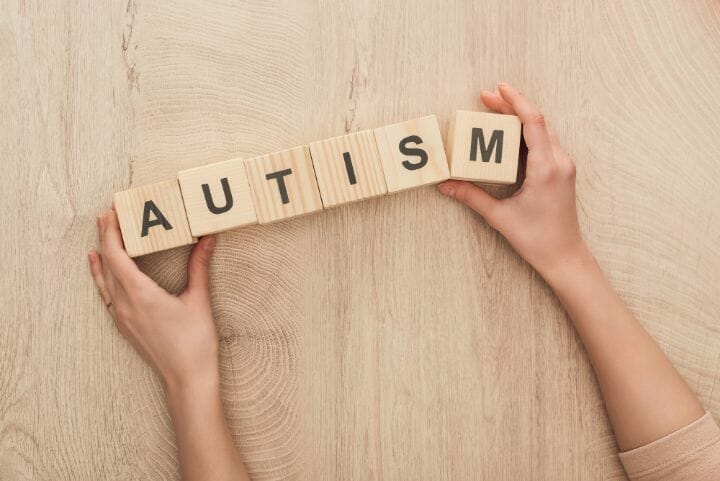We often hear about autistic children being on a spectrum, from high-functioning to severely disabled, and as they grow up they will need various levels of support.
When the child is young, their parents are around to provide for their needs and give the support the child needs based on where they fall on the spectrum.
As the person with autism grows up, their parents will also age which means at some point the autistic child will find themselves dealing with the passing of their parents.
So, what happens to an autistic child when their parents die? The answer to that question will depend on a few variables, and it isn’t going to be the same for everyone who is on the spectrum.
Contents
What Level of Support Does the Autistic Adult Need?
For those with autism who are high-functioning, as they grow up they could very well be able to live completely independent lives with very little – if any – support. In these cases, they will probably be able to function appropriately and be able to continue with work when their parents pass away.
If a child with autism is severely disabled, they will likely need much more support. They may have been living at home with their parents until they passed away if they were unable to live independently.
In these cases, the adult with autism may be able to move in with a sibling or other family member to help support them. Sometimes, though, there aren’t any family members who are able to provide adequate support so they need to look at other options.
There are group homes, and other similar settings, available for the autistic person to live in. These settings provide the support they need and will make sure they are safe and well cared for.
As a parent of a child, or adult, with autism, you want to make sure your child will be cared for in the event that something happens to you.
It is important that your child have a safe place to live and continue to thrive if you can’t be there to help. There are a number of ways you can make sure your adult child continues to thrive when you pass away.
Make Sure They’re Employed
Even if they only have a part-time job and work a few hours a week, having a job where they can earn money will help their self-esteem and contribute to their overall wellbeing.
In some cases, having a job can help build a community of support for your adult child and they will have many people to help them if you can’t.
Find Them Volunteering Opportunities
Depending on the community you live in, there could be a variety of volunteer opportunities for your autistic child. Even if they are working part-time at a paying job, volunteering gives them a way to connect to their community and helps build friendships. This network of support will be especially helpful when you pass away so they have people to lean on.
You may also like Best Headphones for Autistic Children and Adults
Find Training and Educational Opportunities
In most communities, there are many training opportunities for your child with autism to help build the necessary skills to live independently.
These could be classes or even 1:1 opportunities in areas like adaptive life skills, work-skill programs, money management, and even travel training. Continuous learning will be very important to help your adult child with autism live a successful and independent life.
Attend Social Opportunities
Adults with autism will connect well with other adults with disabilities, and this will help build friendships and social connections. There are various organizations that put together activities and gatherings to get together.
Engaging in social opportunities to build friendships will also help your child connect with others in their community and encourage them to continue to be social, even when you pass away.
Build on Their Strengths
You know your child best: what do you they do well and enjoy doing? If you can get your child involved in activities that are connected to what they enjoy doing then they will feel even more connected to those around them.
Depending on where they are on the spectrum, your child may or may not feel very comfortable with this at first so it could take time.
It’s important to start building on these strengths when they’re younger so they are used to being part of communities without you. This will serve them well when they are on their own.
You may also like Best Toys for Autistic 5 Year Old
Planning for Your Child Living Without You
In some cases, an adult child with autism may be able to move in with their siblings or other family members when you pass away, if they can’t live on their own that is.
If this is the path you and your family are going to take, then you’ll need to figure out the logistics for how this will work. Here are a few things you should think about and try to put into place before it’s a dire situation.
Money
No one likes to talk about money, but this is one of the biggest issues to discuss when planning for the future of your adult autistic child.
As a parent, you can put money aside when you’re younger or even research a life insurance policy to provide the funds for the support and care your adult child will need.
It will also be important that this money is set up appropriately so that it will be used in the manner you intended and that the caregiver for your adult child has the access they need.
If you want to make sure there won’t be any issues, it is recommended you meet with a lawyer to make sure the trust is set up appropriately.
Geographic Location
When a sibling or other family member is going to help out and have your child come live with them they may not live in the same city as the parents do.
So, will they come to live in the city the parents did or will the autistic child go to live with them? Do they have the appropriate housing set up to provide the care needed for your child or do they need to buy a new home to make sure adequate living arrangements are available?
You may also like Best Bed for Autistic Child
Social Services
There are many services available for adults with autism, and other disabilities, that can help your adult child when you are no longer here. They can help with money management, finding job opportunities, and even learning adaptive life skills.
Take advantage of these services and introduce your child to them so they are able to use them for help if needed.
Stability
Many people, children, and adults, with autism struggle with a change to their environment and routine. Since they are very familiar with you being around they may really struggle when you have passed away.
Additionally, they may have job and community activities that they have been involved in for years so they’re very comfortable with their lives.
These factors will be important to consider when talking about who your adult child will live with – is it really the best thing for them to move?
Decision of the Person on the Spectrum
As mentioned, autism is a spectrum and there are some adults with it that are very high-functioning while others rely more on care provided by family members and the community.
The desires of the person on the spectrum, though, should still be considered. What do they want to do? Where do they want to live?
Are they comfortable with the life they have now and where they live? It will be really important to take their feelings into consideration when making a plan.
You may also like How Can I Help My Autistic Child Sleep
Wrap Up
While it’s very important to have ongoing conversations about the future and what may happen to your adult autistic child when you die, you need to make sure the plan includes what your child really wants.
Make sure you know who your child’s service providers are, what community events they are involved in, and where they work (if they do).
If something happens unexpectedly, the information needed for a family member to take over should be readily available so that the child with autism doesn’t have much upset to their life (if possible).
Making a plan for a time when you aren’t around to be with your child is never a fun thing to talk about. It’s important that you consider all the needs of a child with autism, especially based on their individual abilities.
Keeping your child involved in their community and by helping them find a job – if possible – will give them the connection to a social network so they have friendships and relationships in their life.
This will make the transition a little easier for them because it will help keep their daily routine the same, which is a big factor for adults with autism.
If you need to, make an appointment with an attorney to make sure the proper measures are in place so your adult child with autism is well cared for and properly supported.
Other articles of interest




